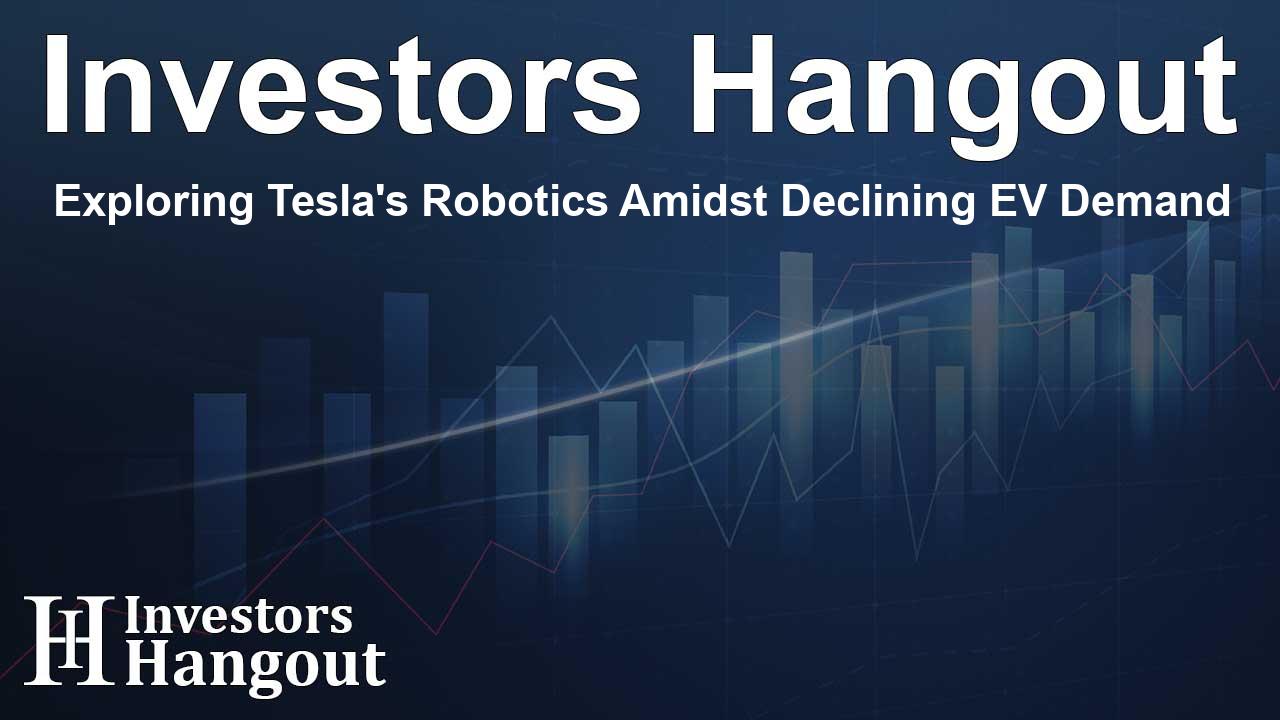Exploring Tesla's Robotics Amidst Declining EV Demand

Tesla's Current Business Landscape
Amidst a backdrop of declining electric vehicle (EV) sales, the focus on robotics by Tesla Inc. (NASDAQ: TSLA) has raised eyebrows. Ross Gerber, co-founder of the investment firm Gerber Kawasaki, has expressed reservations about the company's decision to invest heavily in the development of Optimus robots while its vehicle sales falter.
Why the Concerns?
Gerber recently articulated his thoughts on social media, questioning why consumers would be inclined to purchase a robot from Tesla if they are hesitant about buying its cars. He emphasized that this shift towards robotics appears to overlook the primary business of selling vehicles. "If they won't buy his cars, why would they buy a huge robot for their home from him?" he remarked, questioning the logic behind this strategy.
Market Alternatives and Competition
Gerber also pointed out that there are increasingly viable alternatives available in the market that may attract potential customers away from Tesla. He claimed, "Someone needs to address the elephant in the room at Tesla," signaling that the company's current trajectory might not resonate well with consumers who may seek better options.
The Vision for Tesla’s Robotics
Despite such critiques, Elon Musk maintains a robust vision for Tesla's robotics segment. He believes that the Optimus range of humanoid robots could significantly transform the company's valuation, predicting that they will represent more than 80% of Tesla's worth in the future. This vision aligns with an overarching aim to integrate advanced artificial intelligence into their products and services.
Artificial Intelligence and Investment
Concurrent with its robotics ambitions, Tesla's AI efforts are substantial. Musk's other venture, xAI, has committed over $40 billion toward developing AI capabilities, including a data center in Memphis dedicated to training advanced AI algorithms. This investment underlines Musk's belief in AI's potential to revolutionize not just the automotive industry, but various consumer sectors.
Sales Trends: Tesla vs. BYD
Recent sales figures reveal that Tesla's sales have declined considerably, particularly in Europe, where reports indicate a staggering drop of over 40.2% in July. In stark contrast, BYD Co. Ltd. (NASDAQ: BYDDY) has surged by more than 225%, highlighting a growing competitive threat to Tesla's market share.
To counteract sluggish demand, Tesla has implemented significant price cuts for models like the Long Range variant of the Model 3 sedan in key markets such as China. Moreover, they have introduced enticing $0 down leases for used Model 3 and Model Y vehicles across the U.S., aiming to entice price-sensitive buyers.
Challenges in New Markets
Expanding into new territories has not alleviated Tesla's challenges. In India, where interest in the EV market was anticipated to be high, the company received merely 600 orders for the Model Y, which unfortunately fell short of expectations.
Future Considerations
As the electric vehicle market evolves, Tesla's comprehensive strategy encompassing both automotive and robotics sectors will be crucial. Stakeholders are keenly observing whether Tesla's extensive investments in robotics and AI will generate results that align with Musk's grand visions for the future.
Tesla holds a powerful position in metrics related to momentum and growth. However, its offerings currently suffer from perceived low value compared to competitors. Observers and analysts are closely monitoring Tesla's adjustments to strategy as the automotive landscape continues to transform.
Frequently Asked Questions
What did Ross Gerber suggest about Tesla's sales strategy?
Gerber questioned the logic of investing in robots while EV sales are declining and suggested that Tesla needs to focus on its core vehicle market.
How has Tesla's sales performance been recently?
Tesla has faced a notable sales decline, especially in Europe, with a decrease of over 40.2% reported in July, highlighting increased competition.
What is the relationship between Tesla and xAI?
xAI is Musk's AI venture, and it has significantly invested in advanced AI initiatives that could potentially impact Tesla's robotics and automotive technologies.
What does the future look like for Tesla's robotics?
Musk predicts that Tesla's robotics segment may account for over 80% of the company’s value in the future, showcasing a shift in focus toward robotics and AI.
How are competitors like BYD affecting Tesla?
BYD has shown phenomenal growth, capturing a significant market share, which has led Tesla to rethink pricing and marketing strategies to retain competitiveness.
About The Author
Contact Hannah Lewis privately here. Or send an email with ATTN: Hannah Lewis as the subject to contact@investorshangout.com.
About Investors Hangout
Investors Hangout is a leading online stock forum for financial discussion and learning, offering a wide range of free tools and resources. It draws in traders of all levels, who exchange market knowledge, investigate trading tactics, and keep an eye on industry developments in real time. Featuring financial articles, stock message boards, quotes, charts, company profiles, and live news updates. Through cooperative learning and a wealth of informational resources, it helps users from novices creating their first portfolios to experts honing their techniques. Join Investors Hangout today: https://investorshangout.com/
The content of this article is based on factual, publicly available information and does not represent legal, financial, or investment advice. Investors Hangout does not offer financial advice, and the author is not a licensed financial advisor. Consult a qualified advisor before making any financial or investment decisions based on this article. This article should not be considered advice to purchase, sell, or hold any securities or other investments. If any of the material provided here is inaccurate, please contact us for corrections.
